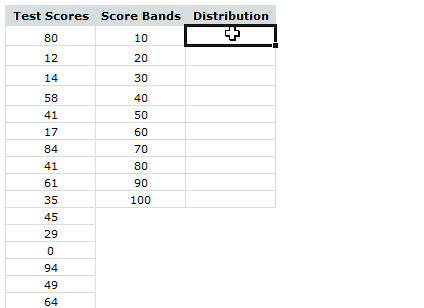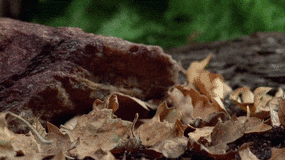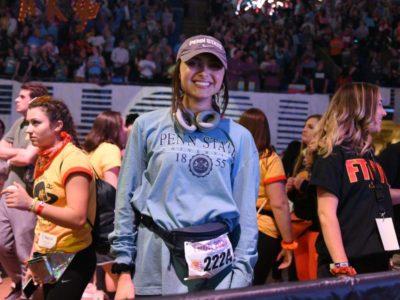From introductory required courses to fun electives like the Anthropology of Alcohol, Penn State students love to pack their schedules. Many of the classes listed below have extremely high popularity, evident by the fact that they are held in the largest lecture hall on campus — Thomas 100. The hall can seat up to 726 students!
Take a look at the 10 most popular classes that students like to take, solicited from students themselves.
10. Rhetoric and Civic Life I and II (CAS 137H/ENGL 137H and CAS 138T/ENGL138T)

This two-part course is a required part of the curriculum for students in the Schreyer Honors College at Penn State. Even AP credits don’t allow scholars to opt-out of this course. Even though it counts for honors credit, this course tends to be popular among the whole student body as well. Rhetoric and Civic Life helps students improve their writing and speaking skills by allowing them to complete research projects on topics of their choice either individually or with a group, depending on the assignment. “The best part of Rhetoric and Civic Life is the opportunity to initiate conversations that are relevant to the political and social issues of today,” Penn State sophomore Tommy Bennett said. Through group work, the class allows students to learn about different perspectives on controversial topics.
9. Elementary Statistics (STAT 200)

As part of the general education requirements at Penn State, students must take six credits of “quantification” courses. Quantification courses usually involve math courses, but it just so happens that STAT 200 counts for 3 quantification credits. Additionally, in order to meet the requirements to enter into the business school at Penn State, you must take this course. Since STAT 200 happens to be one of the easier math courses on campus; students whose majors don’t require hard math courses tend to choose this option to get their quantification requirements out of the way.
8. Sex and Evolution (ANTH 216N)

Known as “sex class,” this course talks about mating behaviors and human sexuality. Besides offering a good laugh, this course’s popularity comes from the fact that it counts as an “Interdomain.” That means that the course spans more than one general education domain. Penn State students must take six credits of interdomain courses before graduation. As one of the more enjoyable interdomains, “sex class” became a favorite among students. Some of the interesting topics covered in a normal class include women’s mating strategies such as competition, sexual selection in men and marriage. Additionally, students were so excited to find out that one whole class period was dedicated to “the female orgasm.” Sex and Evolution, an easy and interesting interdomain, intrigues those who choose to take it.
7. Race and Ethnic Relations (SOC 119)

In Race and Ethnic Relations, students learn about “inequality, competition and conflict” through social movements and government policy. This course counts for one of the introductory sociology classes and for four credits instead of three. Students participate in weekly discussions and journal entries. Race and Ethnic Relations counts for the “United States cultures” requirement for graduation from Penn State, which happens to be another added bonus of the course. SOC 119 also includes a research project in which students write a paper on a controversial topic covered in class, such as immigration or racism. Finally, the course includes a requirement to attend six “World in Conversation Dialogues” throughout the semester. Students are placed in discussion groups with students of different ethnic backgrounds and societal norms are discussed to help break down racial barriers. I thoroughly enjoyed the one I attended last fall.
6. Anthropology of Alcohol (ANTH 140)

Not only does Anthropology of Alcohol count for the United States cultures requirement, it also covers the “international cultures” requirement. This course fascinates students, especially those who enjoy going out on the weekends to one of the many bars in State College. Essentially, students learn about alcohol through the ages, starting 10,000 years ago.
5. Biology: Basic Concepts and Biodiversity (BIOL 110)

Similar to your typical high school biology class, Biology: Basic Concepts and Biodiversity counts as Penn State’s introductory biology course. Additionally, this course happens to be the first required course for those with the intention of graduating with a degree in biology. Many non-biology majors choose to take this course as an easy way to fulfill “natural science” general education requirements. “If you’re a STEM major or pre-med, BIOL 110 is likely one of the required classes for your major. That being said, this class is a favorite by many students regardless of major. Part of the reason could be that the course is a great introduction to biology for those in between majors or those trying to decide what to study in college,” Penn State Biology major Priya Devanarayan said. Biology: Basic Concepts and Biodiversity can be a great way to begin your biology journey at Penn State and see if you really enjoy the subject.
4. Introduction to Human Development and Family Studies (HDFS 129)

This course discusses factors that influence people in every state of their lives, starting with infancy. It also discusses aspects of family life, marriage and intimate relationships. Detrimental factors to the growth and health of children come up in conversation as well. When asked about Introduction to Human Development and Family Studies Professor Molly Countermine’s name came up often. Students enjoyed having her as a professor. “I present the material in a way that helps students understand why they feel, think, and act the way they do. Why do I feel like I can’t really trust my boyfriend? Why do I always run from relationships? Why does my partner want to talk all the time and I don’t want to? I also teach them about the research on parenting infants and children, which they relate back to how they were parented, and how they might want to parent their own kids in the future,” Countermine said. She also incorporates her own personal examples into the course, which resonates with students. “I talk about my own experience with my parents’ divorce, my inability to trust anyone for a long time, how I was able to work through those issues, and how doing so helps me be a better spouse and parent today,” Countermine added. Students leave class inspired to mend broken relationships in their lives and make healthy changes.
3. Introductory Psychology (PSYCH 100)

Not only does this course teach elementary psychology for those trying to choose whether or not to add a psychology major or minor, but it also counts as a prerequisite for all other psychology courses. It is not surprising that PSYCH 100 continues to be one of the most popular classes at Penn State due to the fact Penn State students often choose to add psychology as a minor. The course introduces students to beginner psychological theories and research they can “apply to their everyday lives.”
2. The Artistic Universe (ASTRO 7N)

The Artisitic Universe counts as an interdomain course just like “sex class” listed above. This course offers a unique opportunity for students who enjoy art and science to thrive. Jane Charlton co-teaches ASTRO 7N with Nahks Tr’Ehnl. “All the science is taught through our own University of Mars video game, which students say makes it more fun to learn just by playing the game. They can work through the game on their own schedule without worrying about attending class meetings,” Charlton said. “We hope to reach a point where most all Penn State students take one of our astronomy classes, and with almost 4700 students in Astro 7N this past semester, we are on the right path to achieving that goal.” Students continue to sign up for The Artistic Universe as a creative outlet each semester.
1. Environmental Science (BISC 3)

Earning the spot of most popular class at Penn State, Environmental Science offers students an experience hard to find elsewhere. Students’ grades typically include
exams, but not in BISC 3. In Environmental Science, grades only include journal entries that students complete bi-weekly as well as participation in activities such as an eco meal, a hike in a local park and an eco identity project. “The best part about BISC 3 is its ability to teach students about themselves. I went in assuming it was all about the environment, but I learned about how I fit into the environment. I think it’s really fascinating to find out how our actions affect each other and our surroundings” said Penn State senior Addison Albert. She believes the class is popular because students “enjoy the freedom surrounding the class guidelines.” Jen Anderson teaches Environmental Science with a microphone from the front of Thomas 100, the 726 student lecture hall mentioned above. “As an Environmental Science class, the emphasis of the course is to consider our connections [and] how we are an integral part of Earth as a whole and our local communities,” Anderson said. Due to the discovery nature of the course, BISC 3 continues to be one of the hardest classes to schedule because of its high demand.



















